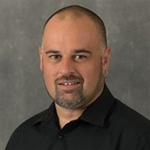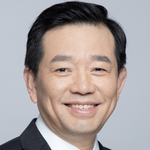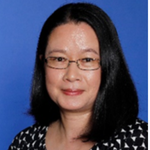- Opening Plenary
Despite the devastating impact on human life and the economic and social disruption caused, the COVID-19 pandemic solicited positive outcomes driven by innovation, collaboration and the need to adapt to the changing environment. As we emerge from the calamity, what is now in focus for the supply of medicinal products and the pharmaceutical industry? What regulations have been updated? How are our regulatory agencies adapting to the post-pandemic world and what innovations have they implemented? What innovation or collaboration has the industry kept post-pandemic or currently pursuing?
The answers to these questions will be explored throughout the program, beginning with the a plenary featuring an update from the Pharmaceutical Inspection Convention and Pharmaceutical Inspection Co-operation Scheme (PIC/S) and a call to arms for the implementation of the backbone to robustly support the manufacture personalised treatments such as cell and gene therapies that we need in our medicinal "toolbox". - Welcome Remarks
Lisa Bennett (Chair) - Keynote Speech: Update from PIC/S
Jenny Burnett - Keynote Speech: National CGT Manufacturing Blueprint
Marguerite Evans GaleaThe Cell and Gene Catalyst (Catalyst) is a national joint venture led by industry which aims to accelerate Australia’s cell and gene industry to ensure everyone has access to world-class innovation sustained by a thriving cell and gene therapy industry.
AusBiotech and Medicines Australia established the Catalyst to create a world-class end-to-end value chain, that can discover, develop, manufacture and distribute cell and gene therapies, commercialise research and benefit patients, create new jobs and export Australia’s therapies to the world. The Catalyst is supported by an Expert Steering Group of industry leaders from our partner organisations who share their expertise and provide advice on strategic direction and priorities.
Dr Marguerite Evans-Galea AM, Director of the Catalyst, will outline the Catalyst’s strategic goals and priorities, provide an overview of the National Cell and Gene Manufacturing Blueprint published by AusBiotech, and discuss approaches to expand manufacturing capabilities and capacity in Australia. - Panel Discussion and Q&A
Jenny Burnett•Lisa Bennett (Chair)•Marguerite Evans Galea - Coffee Break
- Session 1: Implementation of the Revised Annex 1 • What is the Status Quo?
Bruce LoxleyBy the time we come together for this meeting, the revised requirements of the EU & PIC/S Code of GMP Annex 1 - Manufacture of Sterile Medicinal Products will be in force in Europe and many other regions of the world. What are we hearing from industry and regulatory agencies on the implementation across the globe?
- Update: Regulatory Perspective
Matt DavisMatt will present an overview of several points of discussion for Annex 1, providing some insight in to regarding early user and regulator experience and feedback on the Annex. Focusing on several key points of clarification, and elaborating on technical aspects of Annex 1, this presentation should help manufacturers better prepare for the future adoption of Annex 1 and understand regulatory expectations for compliance.
- Feedback from the Industry on the Implementation of Annex 1
Richard DenkSince the 25th of August 2023 the EU GMP Annex 1 and PIC/s Annex 1 is in force and since the publication in 2022 a lot of global discussions going one. During the presentations the Engineering Contamination Control Strategy related to the Annex 1 will be presented. Where are the highest risk to the sterile product and how to protect those areas. Starting from First Air to Barrier and Transfers as well as cleaning and other important topics.
- Panel Discussion and Q&A
Matt Davis•Richard Denk•Bruce Loxley - Lunch Break
- Session 2: Global Regulatory Approach to Combination Products
Justine Mann - EU Medical Device Regulation (MDR) vs US FDA Requirements for Devices in Sterile Combination Products
Daniel FlewellenTechnology is rapidly evolving, and no-where more so than in the healthcare industry. We are seeing a merging of the pharmaceutical and medical device spaces, with new and exciting combination products being developed delivering the benefits of both, to patients in way that weren't possible before. Regulators around the world have differing approaches for managing these various boundary, combination, integrated, co-packaged and co-labelled products, leading to complexities for organisations marketing our products in multiple jurisdictions.
- Current GMP Requirements for Combination Products
Peter QiuA combination product is defined as a product composed of two or more different types of medical products under 21 CFR part 3. Section 4.3 of the regulation establishes which current good manufacturing practice requirements apply to combination products. This presentation will explain the application of CGMP regulations to combination products and FDA’s Compliance Programs for combination product inspections, and share experience in managing regulatory inspections at manufacturing facilities.
- Case Study: Regulatory Challenges and Opportunities in Developing a Novel Microarray Patch Delivery System
Kerrie WayVaxxas is an Australian-based biotechnology company aiming to develop and commercialize a novel needle-free technology for vaccine administration. The company has developed a proprietary high-density microarray patch delivery system, dry-coated with a pandemic influenza vaccine. A US FDA Investigational New Drug (IND) application is targeted to support a Phase I clinical study. This single entity combination product presents a new dose form and route of vaccine administration for which no product specific guidelines or standards exist. CGMP 21 CFR requirements for the drug, device, and biologic constituents apply to the product. This presentation will describe regulatory challenges, development considerations, lessons learned, and potential opportunities encountered to date.
- Panel Discussion and Q&A
Daniel Flewellen•Peter Qiu•Kerrie Way•Justine Mann - Coffee Break
- Session 3: Challenges with ATMP Manufacturing Amongst Differing Global Regulatory Requirements
Pauline DengAdvanced Therapy Medicinal Products (ATMPs), personalised medicines or therapies, Cell and Gene Therapies (CGT), Advanced Therapy Products (ATPs); treatments referred to by varying names around the world offering promising advancements by providing targeted and tailored treatments for an individual patient’s needs. Regulatory agencies play a crucial role in evaluating and approving these therapies to ensure patient safety, product quality and efficacy as we develop and manufacture these complex therapies. AusBiotech's National Cell & Gene Manufacturing Blueprint highlights the need for a unified and collaborative approach to manufacturing to realise the potential in Australia and become an APAC regional leader in cell & gene manufacturing. This session aims to provide understanding and insight into the challenges and opportunities in this rapidly evolving field.
- Regulatory Requirements for ATMPs in Different Regions
Janet MacphersonNot only do the regulatory requirements for Advanced Therapy Medicinal Products vary in different regions, but the classification of such products also varies widely. This mix of tailored human tissue regulations, standard medicines regulations, exemptions, multiple agencies and multiple languages makes navigation of the requirements complex, especially for organisations looking to enter multiple markets.
- Points to Consider for the Commercial Manufacturing of ATMPs
Richard DenkSeveral thousand Cell & Gene Products (ATMPs) are in development and the number of approved products gets higher every year. Now it is important to evaluate the right Commercial Manufacturing strategy and which containment is important to consider. As many of those new therapies have a Bio Safety Level BSL 1 or 2 the protection of the operators and cross contamination concerns should be considered, too. A global Subject Matter Expert Group started 3 years back on the PDA Points to Consider Document for the commercial Manufacturing of ATMPs and the content will be shown during the presentation.
- Cell and Gene Therapy Market and Regulatory Trends
Juliana GutierrezThis presentation offers a comprehensive overview of the latest developments in the cell and gene therapy (C>) field, encompassing both global market trends and regulatory updates. With a focus on approved therapies, expected approvals, and ongoing clinical trials, valuable insights into the sector's growth potential and emerging applications are revealed. We delve into the key drivers and challenges influencing C> market dynamics, along with exploring technology innovations that aim to enhance process quality and productivity.
Shifting our focus to regulatory trends, we assess the evolving global regulatory environment, including the status of C> filings. A particular emphasis is placed on new guidance documents and regulations, with a focus on quality control measures to ensure product safety and efficacy. Lastly, we highlight the significance of developing standards in the C> domain, aiming to foster international harmonization and facilitate advancements in this transformative therapeutic area. - Panel Discussion and Q&A
Richard Denk•Juliana Gutierrez•Janet Macpherson•Pauline Deng
- Opening Remarks
- Updates from the PDA Advisory Boards
Lisa Bennett (Chair)•Richard Denk•Bruce Loxley - Session 4: Mature Pharmaceutical Quality Systems Enabling Ease of Post Approval Change Management
Gerry McKiernanThe US FDA has proposed the Quality Management Maturity (QMM) rating system to incentivise drug manufacturers to achieve higher levels of QMM. The US FDA hopes that transparent QMM ratings could empower manufacturers to improve the effectiveness of their Pharmaceutical Management System (PQS), in turn leading to increased flexibility to make post-approval changes using the tools described in ICH Q12 Technical and Regulatory Considerations for Pharmaceutical Product Lifecycle Management.
- Quality Management Maturity (QMM)
Peter QiuFDA/CDER is establishing a program to promote quality management maturity (QMM) at drug manufacturing establishments and to incentivize drug manufacturers to implement quality management practices that go beyond CGMP requirements. This presentation will provide an overview of US FDA’s Quality Management Maturity Program and share learning from the Pilot Program supporting the development of a system to measure QMM. The presentation will also update the changes to the FDA inspection compliance programs with the inclusion of regulatory assessments of the pharmaceutical development program and the effectiveness of a drug manufacturer’s quality system during inspections.
- Points to Consider for the Implementation of ICHQ12 Technical and Regulatory Considerations for Pharmaceutical Product Lifecycle Management
Bruce LoxleyICH Q12 provides the framework to facilitate the management of Post Approval Changes (PACs) in a more predictable and efficient manner across the product life cycle within ICH regions. It aligns with the stated intention of increasing acceptance of science and risk-based approaches manifested in ICH Q8-11, and the understanding of the Pharmaceutical Quality System (PQS), as pre-requisites to enable post approval flexibility.
This presentation will look at the definition of what ICHQ12 calls “Established Conditions” (ECs) and how they can be incorporated to advantage in Submissions. What can then follow at PAC proposal, is that a PACMP (a PAC Management Protocol) can be written, which when implemented significantly streamlines and accelerates changes to enable faster access of medicines to patients. This assumes that the ECs are still met when defining the PAC.
Harmonisation of PAC requirements worldwide, particularly through the implementation ICH Q12, will ensure consistent global regulatory expectations for PACMPs. Change categorization of PACs should be based on science and risk-based approaches, and product/process knowledge and understanding, including full knowledge of what the ECs are.
Agencies can adopt some or all of the tools in ICH Q12 in a sequential fashion (e.g. early adoption of PACMPs) but full adoption per the guideline, without additional requirements will be required to achieve the full intended benefits.
Fundamental to full implementation is the acceptance of the ICH M4Q CTD dossier and the principles for science and risk-based development in ICH Q8-11.
Challenges to implementation can be addressed with robust training and awareness programs; cross-business unit strategy; external cross-industry and Health Authority knowledge sharing in Conferences such as this! - Coffee Break
- ICH Q12 Implementation and Submission Assessment for Biotechnology Products in the US
Qing (Joanna) ZhouSince formal adoption of final ICH Q12 Guideline for post-approval change management by the US Food and Drug Administration (FDA) in May 2021, the Center for Drug Evaluation and Research (CDER) has received several biologic applications applying ICH Q12 principles. During this presentation, an overview of ICH Q12 implementation in the US is provided. Experiences gained from FDA ICH Q12 pilot program and post-implementation submission assessment for biologics are shared, and lessons learnt from these experiences are summarized for future considerations.
- Panel Discussion and Q&A
Bruce Loxley•Peter Qiu•Qing (Joanna) Zhou•Gerry McKiernan - Session 5: Application and Regulation of Artificial Intelligence (AI) in the Pharmaceutical Industry
Micheal SchafferiusThe use of Artificial Intelligence is rapidly becoming of interest to the pharmaceutical industry, with the potential to revolutionise processes and drive innovation in areas such as:
• Drug Discovery and Development - to analyse data and identify potential drug candidates, modelling to predict drug efficacy and safety, drug formulation and delivery systems.
• Clinical Trials - to identify suitable patient populations, predict patient responses, optimise trial protocols and real time monitoring of patients
• Regulatory Compliance - AI use within pharmaceutical quality systems to assist with regulatory and GMP compliance, data review and trend analysis
• Pharmaceutical Manufacturing - Digital Twins, AI in product visual inspection, analysis of viable Environmental Monitoring, predictive analysis of maintenance requirements, reducing downtime and improving overall manufacturing efficiency.
• To further its application in our industry collaboration between pharmaceutical companies, AI experts, and regulatory agencies is crucial to ensure the responsible and ethical implementation of AI technologies. - AI and Parenteral Products • What Does This Look Like and How is PDA Supporting Industry
Lisa Bennett (Chair) - AI in the Regulatory Space
Ben StevensThis presentation will highlight some recent innovations in pharmaceutical modeling and provide an overview of the current regulatory background. An industry perspective of the perceived hurdles for broader implementation and use will be presented, particularly in the context of AI/ML models. Output from key regulatory publications (e.g., FDA FRAME and EMA AI Concept Paper) and fora (PQRI AI/ML workshop, EMA QIG Listen and Learn) will be addressed.
- Lunch Break
- Case Study: Artificial Intelligence for Environmental Monitoring
Julie WinsonThe APAS Independence is an IVD device used in clinical microbiology laboratories for the routine screening of culture plates. Using ML-based AI it interprets images of plates to determine if microbial growth is present and if the growth is potentially significant for a specific clinical indication. Achieving regulatory clearance has involved in-depth discussions with FDA of testing methodologies to demonstrate safety and performance. The session will describe how these learnings have been applied to support the application of the APAS technology for environmental monitoring of sterile manufacturing areas (APAS PharmaQC) and discusses evidence needed when implementing APAS PharmaQC as an alternative to the current microbiological method.
- The Impact of Large Language Models (LLMs) on Quality Management Systems in Biotech, Medtech and Pharma Industries
Piper O'Keeffe•Connor WhiteMelbourne University Master of Biotechnology Students partnered with SeerPharma to undertake a project assessing the potential use and impact of LLMs (and their related common platforms i.e. ChatGPT, Bing, Bard) in the Biotechnology Sector. The project focused on current and potential impact to the key areas of GMP Quality Management Systems and assessed feedback from a range of industry professionals across different disciplines, levels of expertise and different companies including the TGA. Students from the Melbourne University team will share key details of the project, highlighting the outcomes of the assessment, including recommendations on how LLMs are likely to impact how GMP and Quality are managed over the short, medium, and long term.
- Panel Discussion and Q&A
Lisa Bennett (Chair)•Piper O'Keeffe•Micheal Schafferius•Ben Stevens•Julie Winson•Connor White
Lisa Bennett (Chair)
Senior GMP Consultant and Trainer at SeerPharma
Piper O'Keeffe
Student at University of Melbourne
Micheal Schafferius
Application Specialist for Separation Technologies and Quality at SARTORIUS
Ben Stevens
Director, CMC Policy and Advocacy of GSK
Julie Winson
Director, QA & RA of LBT Innovations
Connor White
Student at The University of Melbourne
- Session 6: Quality Control & Stability Testing for Investigative Medicinal Product (IMP) and Registered Drugs
Mylinh LaQuality Control (QC) testing and stability studies on Investigational Medicinal Product (IMP) and registered drugs are crucial to ensure the safety, efficacy and quality of IMP for clinical trial use, new drug registration or continued registration of an already approved therapeutic.
The scientific approach that should be applied to QC and stability testing must consider inputs such as, the nature of the drug, the market in which it's destined and the relevant regulations and guidance surrounding this.
Guidance such as ICH Q1A (R2) Stability Testing of New Drug Substances and Drug Products Requirements or Pharmacopeial test methods (i.e. USP, BP, Ph Eur, JP, ChP) provide the framework for a scientifically sound strategy to ensure product safety, efficacy and quality as well as the establishment of the appropriate storage and handling requirements to maintain these critical quality attributes throughout the products shelf life. - Case Study: Phase I Drug Product through Analytical Testing
Patrick JamesThe development and conduct of analytical testing during the early stages of investigational medicinal products (IMPs) identifies drug substance, product and in-process boundaries for which that biologic, fusion or therapy progresses through the clinical phases of safety, efficacy through to registration. The Regulated Biomanufacturing group at CSIRO has been established to provide a local cGMP manufacturer for Phase 1 biologics to support local SMEs and accelerate them into first-in-human (FIH) trials.
Whilst the selection of analytical tests is informed by ICH Q2(R1), an in-depth knowledge of the molecule developed during research, process development and reference characterization provides the critical information to select the appropriate tests and the associated specifications and range.
In this presentation, we will use case studies to discuss the impact of tests developed for Identity, Purity and Potency and discuss how the conduct and outcome of these assays is critical to the success of Phase 1 drug products. - Considerations and Challenges Associated with Developing Phase-Appropriate Stability Programs for Investigational Medicinal Products
Dean WhelanManufacturing drug products for early phase clinical studies presents unique challenges that contrast to the manufacturing of commercial products.
Stability studies conducted throughout all phases of the product’s life cycle; typically starting in the early stage of drug development and continuing through Phase 1, 2 and 3; provide an understanding of the product to support formulation development, and to satisfy the regulatory requirements for clinical trials.
A well-designed study provides evidence of how the quality of a drug varies with time under the influence of environmental factors. The purpose, regulatory requirements and technical challenges of stability studies vary depending on the product type and the phase of the program.
This presentation will explore the uniqueness, technical challenges and considerations associated with developing and implementing phase appropriate stability studies to support manufacturing of IMPs for early phase clinical studies. - Panel Discussion and Q&A
Patrick James•Mylinh La•Dean Whelan - Coffee Break
- Session 7: Regulation of Medicines in the Post Pandemic World
Adam ThomasThe inability to travel and work in person changed business operations and processes worldwide as we adapted in an attempt to maintain equilibrium. Switching from paper to electronic records, holding virtual meetings, working from home, as we faced these challenges in industry so did our regulatory agencies.
As we emerge from the COVID-19 pandemic and can move away from the innovative ways of working, which of these are we keeping and what should we leave behind? - Updates on FDA/ CDER’s Inspection Program Post-Pandemic
Peter QiuIn response to the COVID-19 pandemic, the US FDA implemented alternative tools to inspections to support regulatory decisions, and developed guidance describing various alternative tools to conduct facility evaluation and inspections. This presentation will provide updates on FDA’s current inspection programs post pandemic and other innovative initiatives with global regulatory authorities to harmonize regulatory decisions to streamline operations and facilitate timely availability of critical drugs globally.
- CDMO Compliance: A Case Study from Samsung Bioepis
Chris (Kwangyong) Nam - Panel Discussion and Q&A
Chris (Kwangyong) Nam•Peter Qiu•Adam Thomas - Closing Remarks
Lisa Bennett (Chair)


















